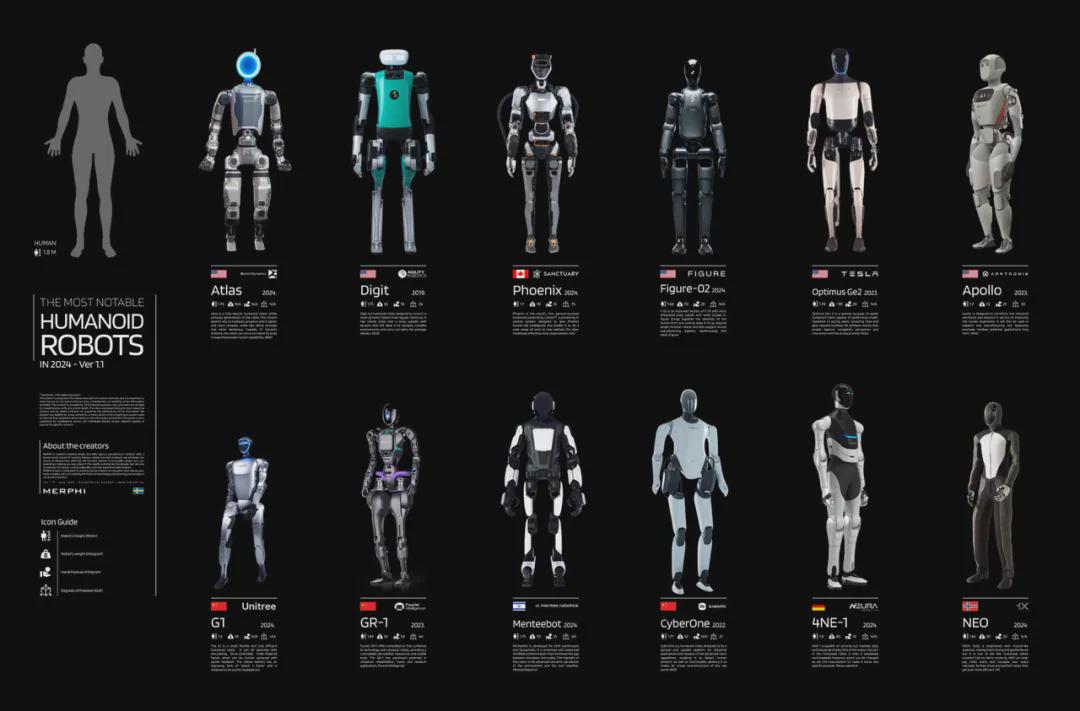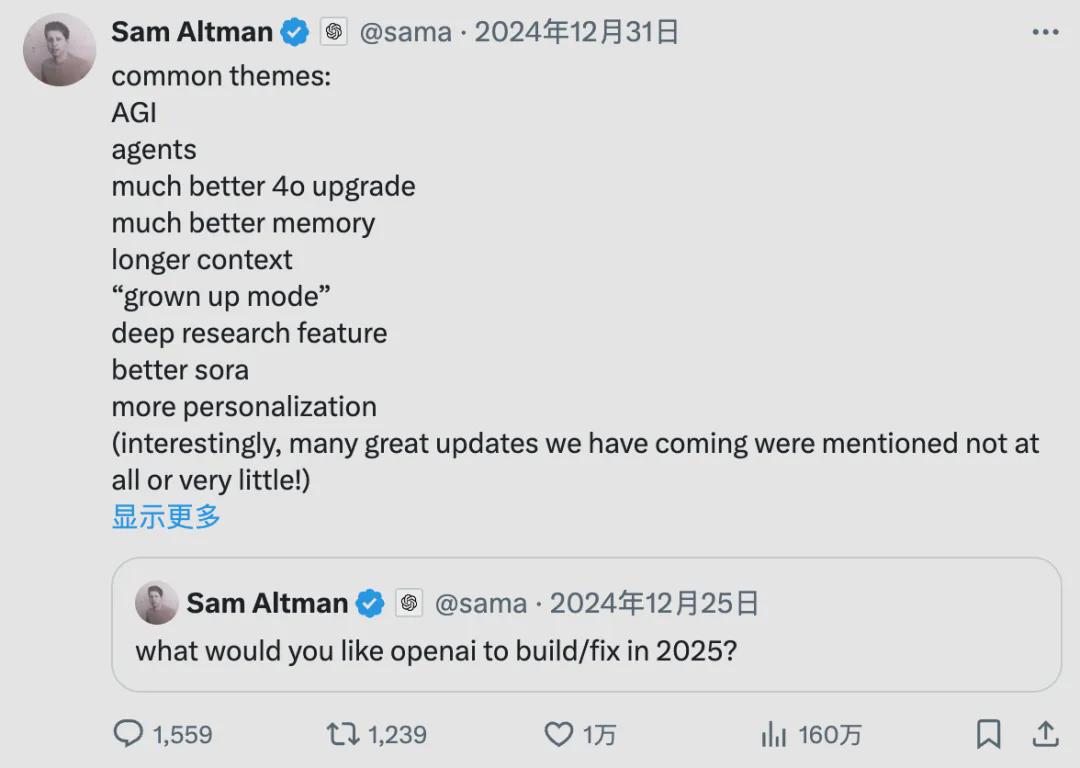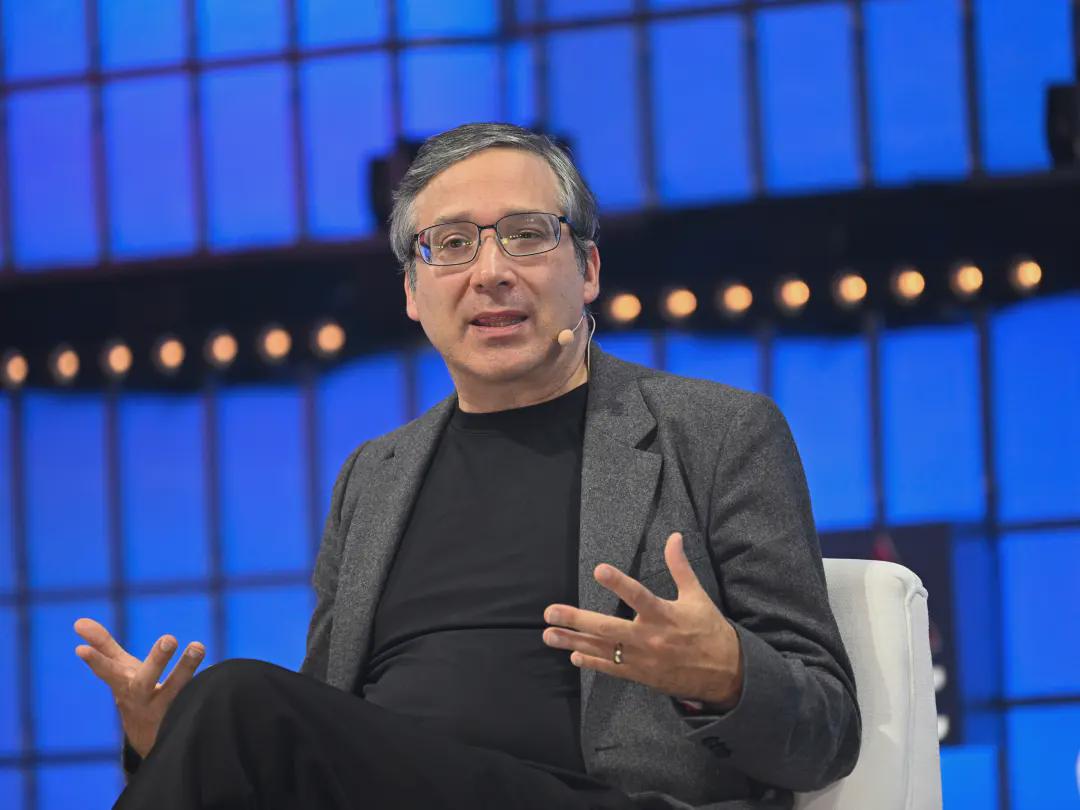Looking back to 2024, 'later this year' 'in the next few weeks' and 'join the waiting list' are certainly AI The three most popular lies in the field.
OpenAI's AGI hype has caught the attention of the world, while competitors such as Anthropic and Gemini are catching up and stirring up the market, and the rise of open-source models has taken the giants by surprise.
In the midst of this generative AI frenzy, the 'bubble' has also risen and fallen.
Predicting the direction of AI development in the new year seems to have long become an annual reservation program, we have also collected and summarized some of the AI circle big brother prediction, take a look at it.
NVIDIA Senior Research Scientist Jim Fan: Our children will grow up as 'robot natives'
It is a great relief to know that we are the last generation without advanced robots everywhere. Our children will grow up as 'robot natives'.
They'll have humanoid robots cooking Michelin dinners, robotic teddy bears telling bedtime stories, and FSD autopilots driving them to school.
We are a generation of 'robotic immigrants' moving into a new world of ubiquitous physical artificial intelligence, just as our parents were 'digital immigrants' learning to readjust their lives on a 6-inch touchscreen.
It's a journey of both inventing sci-fi technology and reinventing ourselves. Everything that can move will become autonomous.
From now on, every year is a year for robots.
For the coming wild 2025 Raise your glass 🥂

Geoffrey Hinton, the Godfather of AI: In the Future, Humans Will Be Like 3-Year-Olds Compared to Powerful AIs
Professor Geoffrey Hinton, the 'Godfather of AI', has raised his prediction of the risk that AI could lead to the extinction of the human race, according to the BBC.
The scientist, who just won the Nobel Prize in Physics this year, said that within the next thirty years, AI could lead to the extinction of the human race.It has risen from the previous forecast of 10% to between '10% and 20%'.
Hinton compares the arrival of AI to the industrial revolution.
He further elaborated, "In the Industrial Revolution, human power [became less important] because machines were more powerful-if you wanted to dig a ditch, you dug it with a machine."
"What we have now is a replacement for human intelligence. Ordinary human intelligence will no longer be at the forefront of technology; it will be replaced by machines."

And when Hinton was asked if he had changed his analysis of the risk of a potential AI doomsday, Hinton said that risk had indeed risen. "We've never had to deal with things that are smarter than us before," he explained.
Using the mother-infant relationship as an example, he pointed out that in nature, it is extremely rare for less intelligent things to be able to control more intelligent things.
In his opinion, in the future, human beings will be like 3-year-old children compared to powerful AI systems.
On the pace of development of AI, Hinton said it is far exceeding expectations and is 'very, very fast'. He warned that most experts in the field believe it is a 'very scary thought' that an AI smarter than humans could emerge within the next 20 years.
"We have absolutely no experience of what it's like to have something smarter than us."
Google AI Studio Leader Logan Kilpatrick: It'll Be Another Year Before Intelligence Explodes Into Full Force
2025 is the year when AI vision capabilities will become commonplace, while 2026 will see the full development of intelligent bodies.
There is a transition period of approximately 12 months from capability to mass production. While most of the vision use cases now have real-world application capabilities, widespread deployment has not yet been realized.
The smart body technology still needs to be further optimized to support the application scale of 1 billion users.

Microsoft AI Lead Mustafa Suleyman: AI with permanent memory will give you a second brain
I'm very confident that AI will have permanent memory by 2025.
We are now able to accurately retrieve information from the web and intelligent assistants can be updated with the latest news and web content within 15 minutes.
This memorization ability will be used to build your personal knowledge graph of documents, emails, calendars, and more. This will revolutionize your experience as you no longer need to start over after a few sessions.
It remembers the ideas you mentioned three weeks ago ......It's like having a second brain that becomes an extension of your mind, which is why emotional intelligence (EQ) is so important.
Hugging Face CEO Clément Delangue: Giants Collapse, China Leads, Bio Breakthroughs
Six predictions for AI in 2025:
There will be the first large-scale public protests around AI issues.
A large company's market capitalization will be cut in half or more by AI.
At least 100,000 personal AI bots will get pre-orders.
China will start leading the AI race (a result of its dominance in the open source AI race).
AI in Biology and Chemistry Set for Major Breakthroughs
We will start to see the potential of AI in the economy and job growth with 15 million AI builders on Hugging Face.
Richard Waters, Financial Times: no real 'killer apps' in 2025
1. In 2025, the growth of models that rely solely on increasing data and arithmetic power will slow down, and the most promising direction will be models with multi-step reasoning capabilities, with plenty of potential for Google's development of Agent-type functionality.
2. The first AI applications that can directly intervene in users' lives will appear in 2025, but due to technical reliability issues, large-scale promotion still needs to be cautious.AI will continue to be integrated into all kinds of applications in a 'ubiquitous' way, rather than emerging as a true 'killer app'.
3. Despite competition from major tech companies, NVIDIA is expected to maintain its leadership position, with the three major tech companies each deploying millions of in-house AI chips by 2027, and NVIDIA's software strengths remaining an important moat.
4. The AI race of large technology companies will continue to drive capital expenditure, the market may see greater fluctuations and adjustments, and the AI concept speculation may continue in the case of sufficient liquidity.
Musk: AI Intelligence May Surpass Individual Humans by 2025
By the end of 2025, AI will likely surpass the intelligence of any single human, and by 2027 or 2028, it may even surpass the intelligence of all humans combined.
By 2030, the probability of AI surpassing the combined intelligence of all humans approaches 100%.
Shane Gu, Co-Head of Multilingual Capabilities, Gemini Post Training
2023: ChatGPT
2024: AGI
2025: ASI
OpenAI CEO Sam Altman: AI user callout list is out, who do you Pick?
Common Themes:
General Artificial Intelligence (AGI)
Agent
Better 4o Upgrade
More powerful memory
Longer contexts
Adult mode
In-depth research function
A more powerful Sora
More personalization
(Interestingly, many of the major updates we have coming are barely mentioned here, or mentioned very little!)

Y combinator partner Jared Friedman: AI video conferencing coming true?
In 2024, everyone will finally be able to talk to AI on the phone, and the call experience will be very natural thanks to low latency.
I think we'll see similar progress next year.
That's the ability to make Zoom calls with the AI, and there will be facial expressions and a full virtual avatar, and the entire interaction will be in real time, looking like you're talking to a real person on the screen.
Diego Guerra, AI partner of the Meta Llama ecosystem: there will be multiple versions of the Llama 4 series.
This year, the Llama 4 series will be available in multiple versions and push for major advances across the board, while in thedomains such as speech and reasoning to realizeA range of new product innovations.
Stay tuned.
Scholar Gary Marcus: In 2025, AGI Will Remain a 'Daydream'
25 Predictions for Where AI Will Be in 2025
High-confidence prediction:
1. even if Elon Musk claims it will happen, we won't see generalized artificial intelligence (AGI) this year.
2. by the end of 2025, no single system will be able to solve more than four of the 2027 Marcus-Brundage AI tasks. I wouldn't even be surprised to see no task reliably solved for an entire year.
3. profits from AI models will continue to be slim to non-existent (but chip manufacturing companies will continue to do well).
4. The U.S. still has virtually no regulations in place to protect its consumers from the risks posed by generative AI.
5.AI Security research organizations will provide guidance, but in responding to truly dangerous models, they have little legal power to stop them from being created.
6. Generative AI's reliability issues will continue to plague its development.
7. The phenomenon of hallucinations (or more accurately, fictions) will continue to plague generative AI.
8. reasoning errors will continue to plague generative AI.
9."AI Intelligentsia" will be infinitely exaggerated in 2025, but will still be unreliable in most cases, and only likely to perform well in a very narrow range of application scenarios.
10. Humanoid robots will get a lot of attention, but there won't be any released products that can achieve the same capabilities as the 'Rosie the Robot' in Robotech.
11. OpenAI will continue to, until its products have matured and are widely available at an acceptable price.Preview these products months or even years in advance.
12. almost no radiologists will be replaced by AI (contrary to Hinton's infamous 2016 prediction).
13. Truly driverless cars (which do not require humans to monitor traffic) will continue to be limited to a handful of cities, mainly in Western countries, and will operate mainly in good weather conditions.
14.Copyright litigation around generative AI will continue throughout the year.
15. energy consumption will continue to rise and become a major issue, but few generative AI companies will disclose their usage.
16. The labor force replaced by AI will be less than 10% and probably less than 5%.
17. i still stand by the three predictions i made an hour before o3 was released: it will be amazing, but it will prove to be unreliable and far from a reliable technology in the general purpose domain.

Medium confidence prediction:
1. Technical barriers remain difficult to establish. Instead, models in the United States and China will tend to be more similar; some systems in Europe may gradually catch up to roughly the same level.
2. few companies or consumers will adopt o3 on a large scale due to concerns about price and its stability.
3. Companies will continue to experiment with AI, but it will still be prudent to apply it to production-grade systems and enable large-scale scaling in the real world.
4.2025 could be the year valuations of major AI companies start to fall. (However, as stated, "market irrationality can last much longer than your solvency.")
5. Sora's problems in the physical field will continue.
6. the impact of neural symbolic AI will be significantly higher.
Low-confidence, but debatable predictions:
1. we may see a massive cyber attack in which generative AI will play a significant causal role.
2.The "GPT-5 level" model may still not be available.